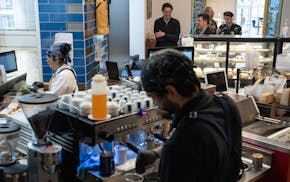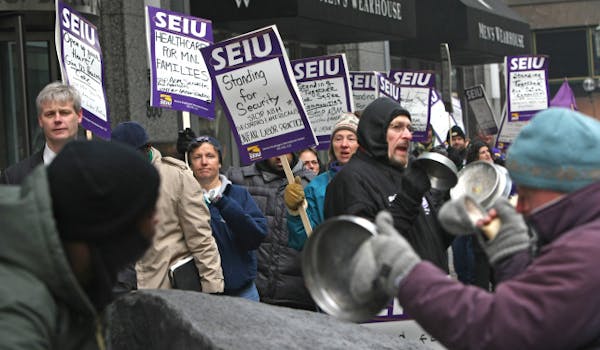A year and a half ago, the CEO of U.S. Bancorp asked employees to start coming to the office more often, preferably three days a week.
Now the Minneapolis-based bank is making it mandatory.
In a recent message to employees obtained by the Star Tribune, company leaders noted that while branch employees are on site everyday, its guidance for hybrid employees has been more loosely followed. That will change this year.
"Beginning this quarter, if you have an assigned office space in one of our U.S. Bank facilities, you should be in the office three or more days a week," they wrote in the memo, adding that the new goal will be included in annual performance reviews.
As part of the shift, U.S. Bancorp also is designating 24 of its markets across the United States as hubs where the company will continue to invest in its offices and make some upgrades, while locations in non-hub markets may be downsized over time.
"Like other companies, we want to find a balance between providing flexibility for our employees and ensuring that we can both enhance collaboration and build the relationships that come easier when work is done in an office," said Jeff Shelman, a U.S. Bancorp spokesman in a statement.
U.S. Bancorp is the sixth largest employer in downtown Minneapolis, with about 4,200 employees who work at its headquarters.
Although many corporate leaders have been eager to bring employees back to the office, some employees have been more reluctant to return after enjoying the freedom of working remotely for the last four years.
Adam Duininck, CEO of the Minneapolis Downtown Council, said 11 of the top 15 employers downtown now have workers coming to the office at least two or three days a week.
The fourth and fifth largest employers downtown — Wells Fargo and Ameriprise — require employees to be in the office three days a week. In the case of Wells Fargo, that policy has been in place now for two years.
Downtown leaders have been trying to encourage companies to bring back workers more often to help keep the city core vibrant and the array of restaurants and other shops that depend on more traffic in business.
"There's a little bit of hesitation to do requirements just because of the workforce shortage," Duininck said. "But there's also a good amount of communication being done by companies saying, 'Come into the office because being in-person helps your professional career, professional development, and there are more mentoring opportunities in the office.'"
Target Corp. is among companies that have had a more lenient approach, letting workers and teams decide what works best for them. It was recently dethroned as downtown's largest employee but still has 7,100 employees attached to offices along Nicollet Mall.
In an olive branch to downtown boosters, Target has started telling all of its downtown workers to come to the office for a specific designated week at least once a quarter.
As for U.S. Bancorp, company leaders provided more details about the hubs in a follow-up email this week.
"Our goal is for hubs to be places where people can grow and develop their careers more effectively, learn from one another in-person and focus on delivering growth through collaboration and teamwork — while keeping risk, safety and security, customer service and other important business needs top of mind," wrote Elcio Barcelos, chief human resources officer, and Mark Runkel, chief transformation officer.
About 70% of U.S. Bancorp's workers already live or work in one of these hubs. Future hiring and promotions will be centered on those sites.
The company is not exiting any markets, Barcelos and Runkel said, and still will have employees in non-hub cities, but they may work from client centers or from home.
As for U.S. Bancorp workers who have been designated as remote workers but who live in a hub, they "will likely be expected to start working on site as space becomes available."
The company's branch locations will not be affected by these changes.

Why now might be the best time to make a deal on boats, ATVs and other powersports

To reset downtown Minneapolis skyway life, building owners cut deals with retailers

Ramstad: AI is English-centric, but it's picking up Hmong quickly
Don't throw away perks that come with insurance and memberships

